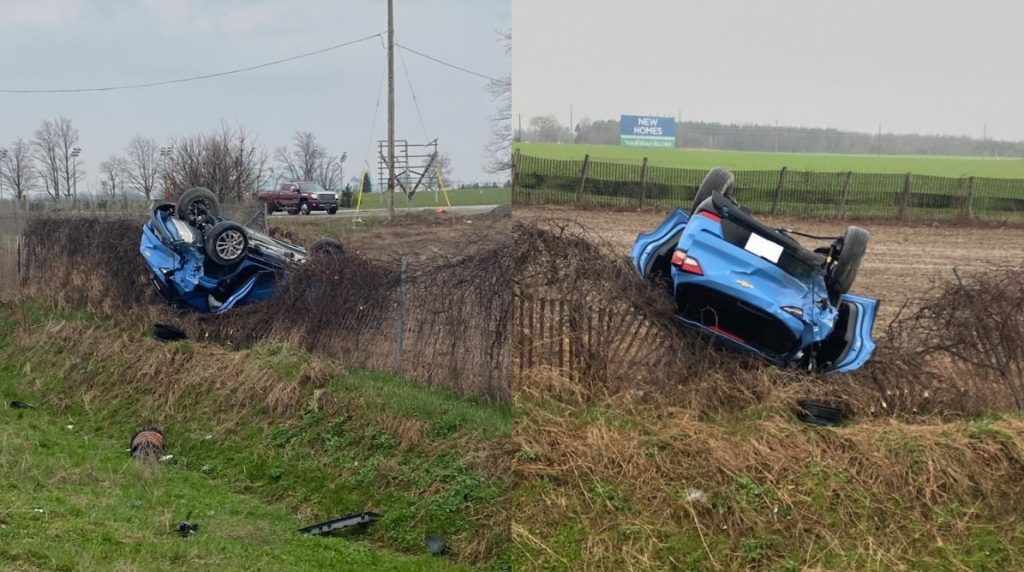People You Should Know: Midwife Manavi Handa
Posted October 5, 2010 12:32 pm.
This article is more than 5 years old.
By the time some women show up at the door of Manavi Handa’s clinic, they often have nowhere else to go for prenatal care.
The midwife is the last stop for many uninsured pregnant women who find themselves shuffled through the health care system, unable to pay for service. Handa said these women are recent immigrants who arrive in Toronto through the proper channels and are unaware they have to wait for health care coverage to kick in (there’s a three-month waiting period for recent immigrants), or they’re here illegally, often on expired visitor’s visas.
“I think of it as a marriage by accident,” Handa said, noting many recent immigrants prefer to see doctors as opposed to midwives because perceptions of midwifery tend to be much more traditional in some parts of the world.
“For a lot of the women we see, the buck stops with us. There’s no where else they can go, they’ve tried everything else.”
The topic of providing free care to the uninsured fuels fierce debate with “very racist undertones” within the health care industry, Handa said. She has worked to shine a light on the issue in the hopes the government can come up with solutions.
Handa was honoured with the 2010 Urban Alliance Race Relations Award in September for her work with marginalized women – an honour she said she accepted on behalf of all of the midwives undertaking similar work across the city.
“We have to have a systemic approach. It can’t just be every single person is here by accident, we don’t know how they got here,” Handa said.
“There’s all this stuff about the ethics of charity care, but we’re not talking about someone who is an alcoholic that needs a liver transplant and is here illegally. That’s a much more complicated scenario. At the end of the day these people are having Canadian babies. And we know that prenatal care is very cost effective.”
For uninsured women, the first visit to Handa’s midwifery clinic, West End Midwives, usually comes in the late stages of pregnancy, or in a few cases, the early stages of labour.
Handa said in many cases a woman will go to a walk-in clinic, where the doctor will refer her to an obstetrician. The OB, who wants to ensure they receive payment for seeing an uninsured patient, will ask for a $2,000 to $3,000 retainer, Handa explained. If a woman can’t pay, she’ll then be referred to an already over-stretched community health centre that may not be able to accommodate her. The community health centre will then refer her to a midwife.
Midwives don’t work on the fee-for-service model that doctors do and can provide pre and post natal care for any woman, regardless of insurance or immigration status, so long as she’s a resident of Ontario. Midwives feel the pressure when an uninsured client needs to consult an OB should a complication arise, Handa said. OBs become frustrated because they don’t get paid for treating uninsured patients.
“I’m not an immigration officer. I’m a health care provider,” she said.

Handa shows off a doll given to her by fellow midwives.
Handa, the child of South Asian immigrants, was raised with the expectation she’d become a doctor but became disillusioned with pre-med studies and decided to pursue midwifery instead. Once she was accepted into the program at Ryerson she said “I never looked back. I had found my calling.”
She’s been a practising midwife for a decade and is an associate professor at her alma mater.
Handa knew early on she wanted to work with marginalized women, which is fulfilling but takes its toll physically and emotionally, she said. Aside from being on-call 24-7, Handa said she sees heart-wrenching family struggles and some women who’ve fled awful situations, only to find themselves in crisis, once again, in their new home.
“There are times when it can be totally overwhelming, but at the end of the day it’s really gratifying work,” she said.
“There’s a lot of hope and life around newborns.”
Handa sees a broad range of clients due to her clinic’s catchment area, from middle class and well-off women around High Park to recent immigrants living in poverty in Rexdale.
“The conditions I’ve seen people living in … I actually didn’t know that level of poverty existed in our city and I certainly didn’t know it existed with families,” she said.
Anyone you’d like to know? Send your suggestions here.
Others We’ve Introduced You To:
Suresh Joachim, Canada’s #1 World Record-Breaker
Yvonne Bambrick of the Toronto Cyclists Union
David Anderson, artistic director, Clay & Paper Theatre
Jason Gibbs, biologist and bee researcher
Madeleine McDowell, historian, activist and artist










